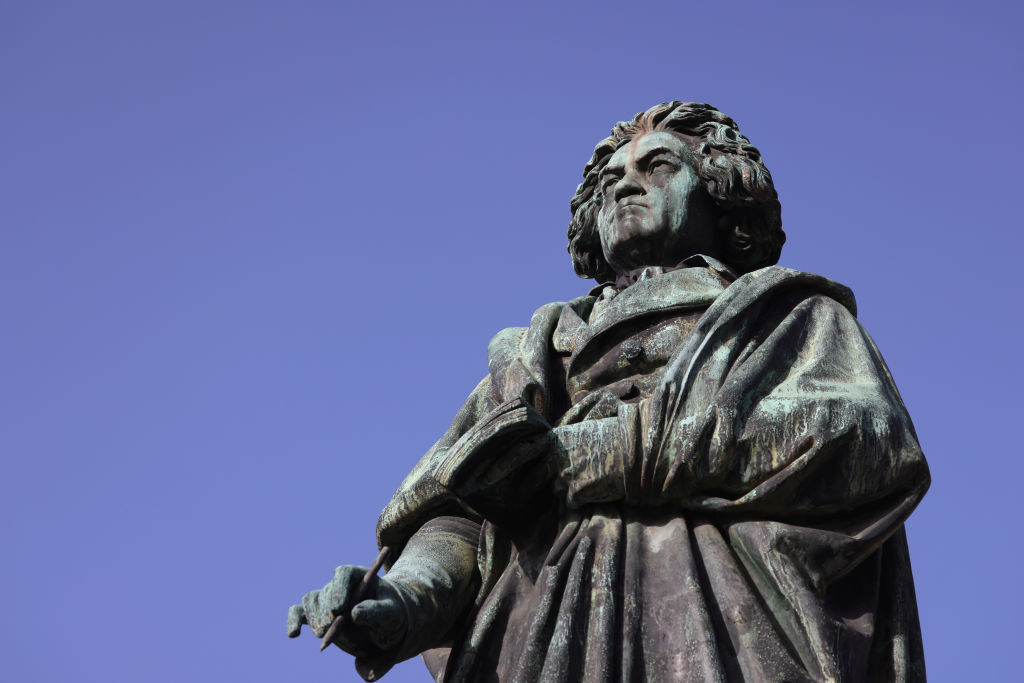I’m sorry to start this blog with a lament, but something sad has happened in Pittsburgh. Its maestro — whom some critics believe to be the finest orchestral conductor in the world — has recorded Beethoven’s Ninth and unexpectedly messed it up.
Since becoming music director in 2008, the 62-year-old Austrian Manfred Honeck has transformed the reputation of the Pittsburgh Symphony to the point where no one still refers to the ‘Big Five’ American orchestras, traditionally those of Boston, Chicago, Cleveland, New York and Philadelphia.
It’s happened fast, too. In 2013, the New York Times reported that the Big Five were being swept away by ‘the great western migration’ of musical excellence to Los Angeles and San Francisco. No mention of Pittsburgh. But 2013 was the year Honeck signed up the orchestra to Reference Recordings. As a result, Pittsburgh shot into the stratosphere of US orchestras, thanks to a handful of recordings for a label mainly familiar to audiophiles whose devotion to ‘Hi-Res’ audio is undisturbed by their inability to distinguish it from regular CDs in blind tests.
Dvorak’s Eighth, Shostakovich’s Fifth, Bruckner’s Fourth, Beethoven’s Eroica. That was all it took. There were a few others, but on the strength of of those discs alone critics began salivating at the prospect of the next revelation from Pittsburgh. Yes, Pittsburgh, the only US metropolitan area where more people die each year than are born — and which, unlike other Midwestern and Northeastern cities, never acquired one of those mid-century control-freak geniuses who stayed long enough to turn a good orchestra into a charismatic phenomenon. No George Szell, Fritz Reiner, Leonard Bernstein or ‘Stoky’ — that’s Leopold Stokowski, the Philadelphia maestro with the dodgy European accent who, traveling through Parliament Square, once asked ‘What is called, big clock?’, a strange question for someone born and raised in Marylebone.
Anyway, Pittsburgh suddenly had a music director who was a control freak without the sour temper of Szell, the sadism of Reiner, or the kaleidoscopic vanity of Stoky and Lenny. Honeck’s requirements were meticulous, rooted in a mixture of scholarship and slightly fanciful speculation. Horn player Stephen Kostyniak told the New York Times that in Ein Heldenleben ‘he wanted one particular quintuplet rhythm a certain way, because in his mind it’s when Strauss’s wife slaps him and says, “Shut up!”‘ Also, Honeck claimed to have discovered a ‘direct correspondence’ between Bruckner’s Ninth and the Latin text of the Mass.
Honeck, like Bruckner, is a Catholic who attends Mass several times a week and, unlike ‘devout’ President Biden, actually supports the Church’s teaching on abortion. His 2019 recording of the symphony is magnificent, and the concluding Adagio — no risible ‘completion’ of the finale, thank God — is the most compelling since Furtwängler’s. Less compelling, however, was the 2,000-word section of the liner notes in which the maestro anatomized the relationship between Bruckner’s writing and the repetition of the Agnus Dei in the Mass.
Which may or may not exist. It’s guesswork. I’m afraid it reminded me of the engineers-turned-amateur archeologists who’ve been to the Great Pyramid of Giza, ‘done all the measurements’ and can now exclusively reveal that it was built to house a Trident missile or whatever. But it didn’t matter because, although Honeck adjusted his interpretation to fit his theory, no one noticed.
Alas, you can’t say the same of the new Beethoven Ninth. The trouble begins within seconds: three, to be precise. There’s the familiar hum of an open fifth — just the notes A and E, like an orchestra tuning up — which the first violins then play in outline, alternating thirty-second and quarter notes: da-duh, da-duh, da-duh, with the ‘duh’ eight times longer than the ‘dah’. But Honeck has the violins snatch almost inaudibly at all the notes. Instead of creeping tension, we hear wispy decoration.
Then there’s a big misjudgment. As the rest of the orchestra erupts in unison, Beethoven has the trombones and timpani beat out a military rhythm — DUH-DUH-da-DUH-DUH — that in the hands of Klemperer could flatten a village. And what does Honeck give us? DUH-da-da-da (da), the last one in parenthesis because it’s evaporated.
If Beethoven had wanted a hairpin diminuendo he’d have asked for it. He didn’t. When I first heard it I assumed that the Pittsburghers were choking on a piece of period-instrument dogma — the idea that phrases are more ‘historically informed’ if they end in a petite mort. But that’s unfair on Honeck, who does his own thinking and in this instance has decided that allowing the motif to ‘relax’, taking the accent off the second beat, creates ‘beautiful, full-bar phrasing.’ Which would be fine if this were Boccherini.
By now we’re 43 seconds in and already looking at an exquisitely trussed turkey. Honeck has no problem accomplishing his strange mission to prettify the Ninth. If, from time to time, he wants to lapse into a Mendelssohnian fairy dance, there’s no one daintier than the Pittsburgh woodwinds. The brass as well as the strings can skip like lambs in spring when the maestro is in the mood — and if that sits oddly with Beethoven’s marking Adagio molto e cantabile, at least everything is bathed in a Reference Recording luxury soundscape.
The high jinks continue in the finale, whose Turkish march reminded me off the loss to British comedy when they canceled Carry On Up the Janissaries. The soloists are top-notch; likewise the aptly named Mendelssohn Choir of Pittsburgh, which in addition to singing at frantic speed manages to take on board Honeck’s distinctive theory of elocution (see liner notes). There’s more than a whiff of the finale of a comic opera in which the heroine and her prince are reunited, the maid marries her village sweetheart, the wicked notary slinks off to drown his sorrows and ‘all sing of their joy.’
If you think this is just me being mean, let me refer you to David Hurwitz of Classics Today, whose YouTube review is headed ‘Honeck’s Narcissistic Beethoven Ninth’. And please note that Hurwitz is a fan; he’d much rather be trashing a Ninth by Roger Norrington or Simon Rattle and so would I. The sad thing is that only a wildly imaginative conductor with a orchestra drilled to perfection could produce something so expertly ill-conceived. How do you rein in the overactive bits of Honeck’s imagination — what I think of as the autodidactic pyramid-measuring stuff — without driving him away? I don’t know. Maybe offer him a bonus if he’ll keep his hands off the liner notes?
Damian Thompson is associate editor of The Spectator and classical music editor of The Spectator World.

























